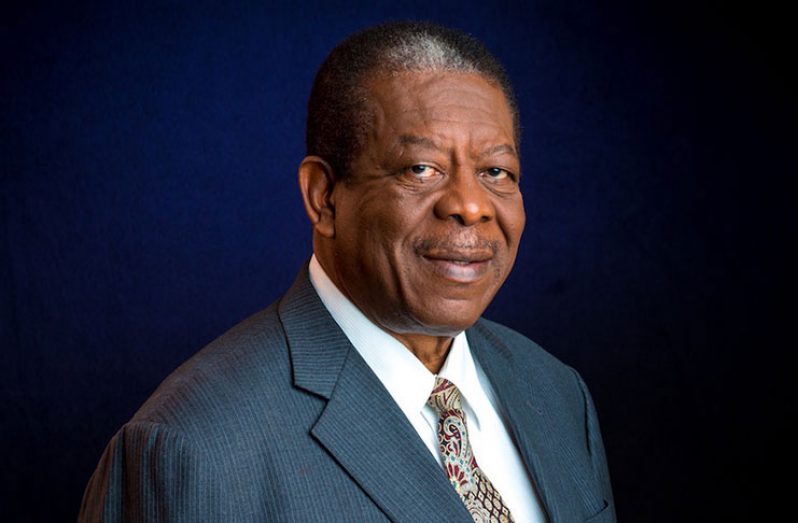THE sluggishness within the local legal system can be reduced significantly if digital recording of court proceedings are used within the judiciary, says President of the Caribbean Court of Justice (CCJ), Sir Dennis Byron.
Speaking at the 37th Annual Bar dinner held on Saturday at the Pegasus Hotel, Georgetown, Justice Byron noted that reducing delay and improving court efficiency is often thought to be an expensive process. He said there are techniques that can challenge such a perception while pointing to the area of trial management here.
“One of the problem areas of trial management in Guyana is that the official court transcript is mostly managed manually by or under the supervision of the trial judge or magistrate.” As such, Justice Byron said “moving to a digital transcript which is automatically recorded at the pace of the proceedings will not only improve the accuracy and fairness of the record and provide the litigant with improved access to it, but it will speed up the proceedings about three times.”
Additionally, the learned judge said making the court record available to the public, litigants and judges is important for open and fair justice for all. “If one takes it to its logical conclusion, a relatively inexpensive process such as making the digital record the official transcript of the court, would have the same effect as hiring three times as many judges, and building, furnishing and equipping three times as many court rooms,” said the CCJ President who disclosed that the CCJ has set the example in this regard.
Guyana has begun that process through the Modernisation of the Justice Administration System project. Under that project, several courts have since been refurbished and new features, including digital recording, have been installed primarily in the Court of Appeal, Chief Justice’s court and the Commercial Courts.
Meanwhile, Justice Byron pointed to the plethora of complaints leveled at the feet of the judiciary. He said the most common amongst the complaints are the inordinate delays, low performance and efficiency, high costs of court operations and low levels of public confidence.
“Discussions on judicial independence usually concentrate on the tensions between the executive and the judiciary. But let us recall the definition of judicial independence as the guarantor of the right of the citizen to a fair and timely trial. If the trial process fails to provide this, should the judges and the legal profession look at their influence on judicial independence? I want to introduce some ideas that have influenced our operations at the CCJ.”
He said the concept of a court of excellence would augur well for the local judiciary while noting that the notion does not define excellence as a state that is achieved, but as the process of continuous improvement. “So that the best courts are those that are continuously assessing where they are, developing plans to deal with weaknesses, implementing those plans, evaluating the effects of what they did, and then starting over,” said Justice Byron.
Accordingly, he said the International Framework for Court Excellence (IFCE) can be used as a quality management system. It is designed to help courts to improve their performance. The framework, he added, is particularly useful to judicial policymakers and practitioners, and it prescribes a set of focused, clear and actionable core court performance measures that deconstruct the ultimate question: “How are we performing?” by addressing two enabling questions: What should we measure? How should we measure it?”
This framework, he also added, makes it clear that the court’s pathway to excellence will be enhanced only through open communication as it relates to strategies, policies and procedures with those who are part of and utilise the system. “The Framework stresses the imperative for courts to be open and transparent about their performance, strategies and their processes to ensure public respect and confidence in the judicial system and to publish details of what actions they are taking to address problems within the court system. This goes hand in hand with strategic planning,” he told the legal fraternity Saturday.
The CCJ President said too that one of the advantages of strategic planning is that the stakeholders–the Bar being the most critical–get an opportunity to contribute to the development of the strategies which will guide judicial performance. “At the CCJ we also embraced this concept and now we are at the end of the first plan from 2012-2017. We are currently in the process of developing the new plan for 2018 – 2023. I recommend a similar process for the courts here,” he stated.












